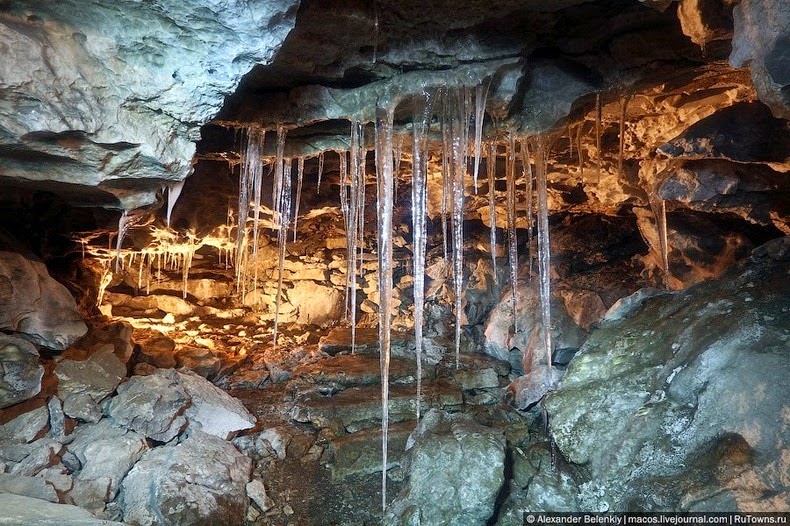
One of the most beautiful places in the cave is right near the entrance: the Diamond grotto. Layers of ancient ice in these chambers overflow under spotlights, bringing to mind a frozen waterfall, while vaults cover large crystals. Diamond grotto adjoins Polar grotto where it is possible to observe ice stalactites and stalagmites. In the grotto of Pompeii Ruins visitors can see rocks of strange shapes some of them resembling silhouettes of animal and fantastic characters, thanks to the special system of illumination.
In all, Kungur Cave contains 48 grottoes, each having their own story and unique name. For example, there are the Coral and Sea Bottom chambers, which are ornamented with stone lace that water wore away for 12,000 years. In the Meteorite chamber, a viewer has the illusion that huge celestial bodies are lying under the earth.
The first plan of the ice cave was made in 1703 when Peter the Great issued the decree sending the well-known geographer Simeon Remezov. Using the materials of Remezov drawings, Stralenberge (a member of Messershmidt Siberian expedition) made one of the first schemes of the cave which we can see now.
The first regular excursions of the ice cave was made by Alexey Timofeevich Hlebnikov, the grandnephew of the Russian America researcher K.T.Hlebnikov. In 1914 Hlebnikov, having rented the cave from a local community of peasants, started to arrange paid excursions for inhabitants of Kungur and visitors of the city. Owing to Alexey Hlebnikov's diligence, the news about Kungur’s outstanding ice cave quickly scattered to different corners of the country. Today the cave is visited by hundreds of thousands of visitors each year.









Source
